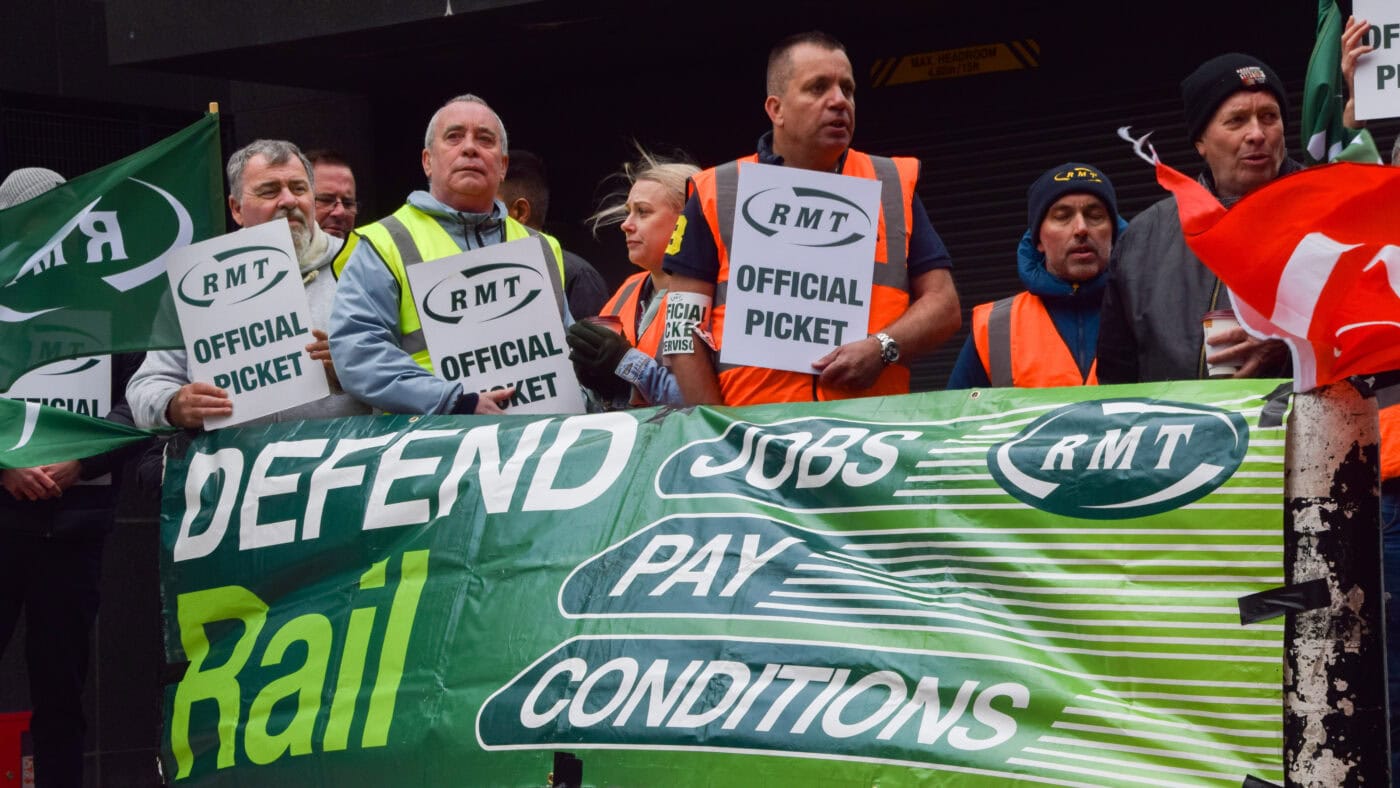The Government’s decision to cave into the unions and offer a 15% pay rise to train drivers will be met with scorn by the public. Labour have been quick to cry poverty since entering government, blaming the Conservatives for a dreadful economic inheritance, but the decision to splash the cash on a 5.5% public sector pay increase worth £10bn and now a £100m train driver pay deal shows a lack of tact and wrong priorities.
As evidenced in the decision to reform the winter fuel allowance, the Chancellor is trimming the fat, but unionised workers seem to be excluded from these ‘tough choices’. It may be predictable that a party founded out of the trade unions would have a soft spot for public sector largesse, but it blows holes in the Government’s stated mission of spurring economic growth.
It is unforgivable that such a generous pay offer to train drivers has been made with no strings attached, meaning no condition for improved productivity or efficiency. It has set a dangerous precedent that a Labour Government will bow to picket lines in the future, just to be able to say ‘we solved the industrial dispute’ with nothing else to show for it.
But the message it sends is also hypocritical. Labour made growth its central economic mission. The Government talks highly of the need for new innovative technologies to be developed and utilised in Britain for advanced manufacturing and climate change solutions, even willing to risk taxpayers’ money in the pursuit of their industrial strategy. Yet it shrugs the responsibility of bringing 21st century innovation to our railways. It begs the question, if they love innovation and tech so much, why was further automation of mainline rail not a condition in the pay offer? Or at least a stated long-term priority for the Transport Secretary?
This offer will only emboldened Luddite resistance to cost saving, efficient technology. A fully digital railway is necessary if Labour wants to sell Britain as a modern, tech savvy nation. The decision not to add improved efficiency and productivity conditions to the pay offer, in conjunction with the eventual state ownership of the railways with GB Rail, signals more problems down the track.
The London underground already has semi-automated services and the DLR system doesn’t require a cab driver. The automation of mainline railways is inevitable, and will eventually end the need for drivers. East Japan Railway aims to achieve Grade of Automation 3 – a level at which the train can drive itself, with a human handling the doors and taking over in emergencies by the mid 2030s. But it doesn’t stop there, the Japanese are already experimenting with fully unattended trains.
The complexity of the UK’s mainline network, with its mix of old and modern infrastructure, makes full automation a challenging goal in the near term, but in the absence of grand new rail infrastructure projects purposely built to be driverless, the argument to automate the railways is more persuasive.
Technological progress dictates that eventually we won’t need drivers on trains in the same way we no longer need a landline phone, a CD player or even bus conductors. Failing to act will leave Britain even further behind our foreign competitors.
And what a glorious spectacle driverless trains would be: a country free from union walkouts, with services that run punctually and reliably. No more dreaded tannoy announcements about driver rest breaks due to legal limits, and no more government bailouts to prevent disruptions. It’s a vision of efficiency, consistency, and financial stability.
But sadly, it is likely to remain in vision stage for passengers in Britain. The Labour Party will not allow such a change because it would trigger an almighty battle with their union paymasters, and they have done their utmost to keep them on side since gaining power. The hypocrisy is bewildering, they want an economy fit for the future, but fail to embrace modern railways and instead defer to overpaid unionised workers. They’ll ‘harness the technology of the future’ for industry, but not for transport – God forbid we have more efficiency there!
If this Labour Government wants economic growth, believes in investing in the technologies of the future and innovation, they must be bold enough to grapple with their affinity with the trade unions. The favouritism they’re showing to the unions will eventually wear thin with voters. Automating rail, or even broaching the subject, is just one example where Labour must bite the bullet and show they truly believe in progress and economic growth.
Click here to subscribe to our daily briefing – the best pieces from CapX and across the web.
CapX depends on the generosity of its readers. If you value what we do, please consider making a donation.


